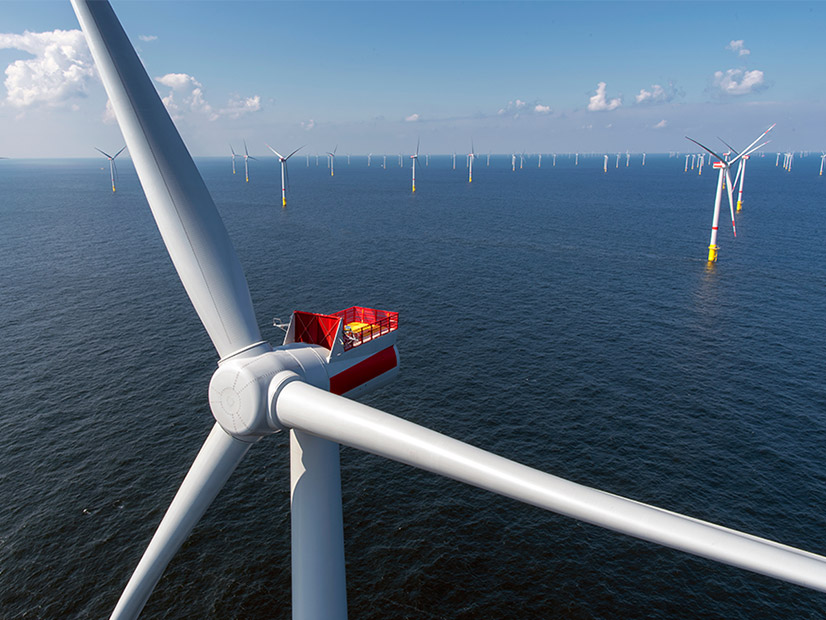This week’s technical conference to address industry objections to NERC’s proposed standard on inverter-based resources, the ERO’s first ever after invoking section 321 of its Rules of Procedure, is likely to be followed by “a lot more” in the near future, NERC staff said.
NERC’s Standards Committee hosted the conference Sept. 4-5 at the Westin Washington, DC Downtown hotel following a directive from the ERO’s Board of Trustees at its meeting last month. (See “Board Invokes Standards Authority to Meet IBR Deadline,” NERC Board of Trustees/MRC Briefs: Aug. 15, 2024.) ERO staff had planned to hold the gathering at NERC’s office in D.C. but moved it to the Westin to accommodate the high level of stakeholder interest.
The board invoked its section 321 authority to order the meeting after PRC-029-1 (Frequency and voltage ride-through requirements for IBRs) failed to receive approval in its most recent formal ballot round. FERC ordered NERC in October 2023 to submit reliability standards addressing several aspects of IBR performance, including ride-through protection, by Nov. 4, 2024, and ERO leadership feared that the normal standards development process might not move quickly enough to meet the commission’s deadline.
During the two-day technical conference, NERC staff presented on the background of the standard, including FERC’s order and the work of the standards development team. Industry stakeholders also took part in panels with NERC staff discussing their issues with the proposed standard and possible ways to address them.
In one panel, representatives from original equipment manufacturers laid out some of the challenges they saw with meeting NERC’s proposed requirements, particularly in existing inverters manufactured before the standard becomes enforceable. Scott Karpiel, principal applications engineer at SMA America, mentioned that while he thought meeting the new requirements should be easy for utilities buying newer inverters, entities using older hardware might have trouble because of the legacy equipment’s firmware limits.
Another panel saw representatives from NERC, utilities and industry groups discuss strategies for implementing the ride-through standard alongside others resulting from FERC’s assignment that have already received industry approval. These include PRC-028-1 (Disturbance monitoring and reporting requirements for inverter-based resources) and PRC-030-1 (Unexpected inverter-based resource event mitigation).
Howard Gugel, NERC’s vice president of regulatory oversight, said entities concerned about implementing the new requirements could consider turning to trade organizations for aid.
“Working by yourself, you might come up with something, but as a community, if you come up with a solution, there’s a power that could occur there,” Gugel said. “I think there’s a wealth of information that can be tapped there as you get involved in those things.”
Soo Jin Kim, NERC’s vice president for engineering and standards, observed that the ERO has “several other projects on the horizon” that are also the subject of FERC directives. She highlighted Project 2023-07 (Transmission system planning performance requirements for extreme weather), which has been working to meet FERC’s directive to submit a standard by December that addresses performance concerns of transmission equipment in cold weather.
The team for Project 2023-07 has produced a new standard, TPL-008-1, which has failed to reach industry approval in two formal ballot rounds. In the most recent round that closed Aug. 22, the standard received a weighted segment approval of just over 18%, well below the two-thirds majority needed to send it to the board for approval. (See Cold Weather Standard Fails Second Ballot.) Kim said this project, and others facing FERC deadlines, may need to follow the path laid out in section 321.
“For some of the major projects that we see on the horizon — high-priority projects, things that require a lot of coordination [and] where there’s major gaps in information that the team just did not have at its fingertips — I do think that these events are [very] fruitful,” Kim said. “The department is [not just] going to … look at this from the standards perspective, but also on the engineering side, we have talked about doing more technical conferences generally, even before we get to some of the standards development steps.”




